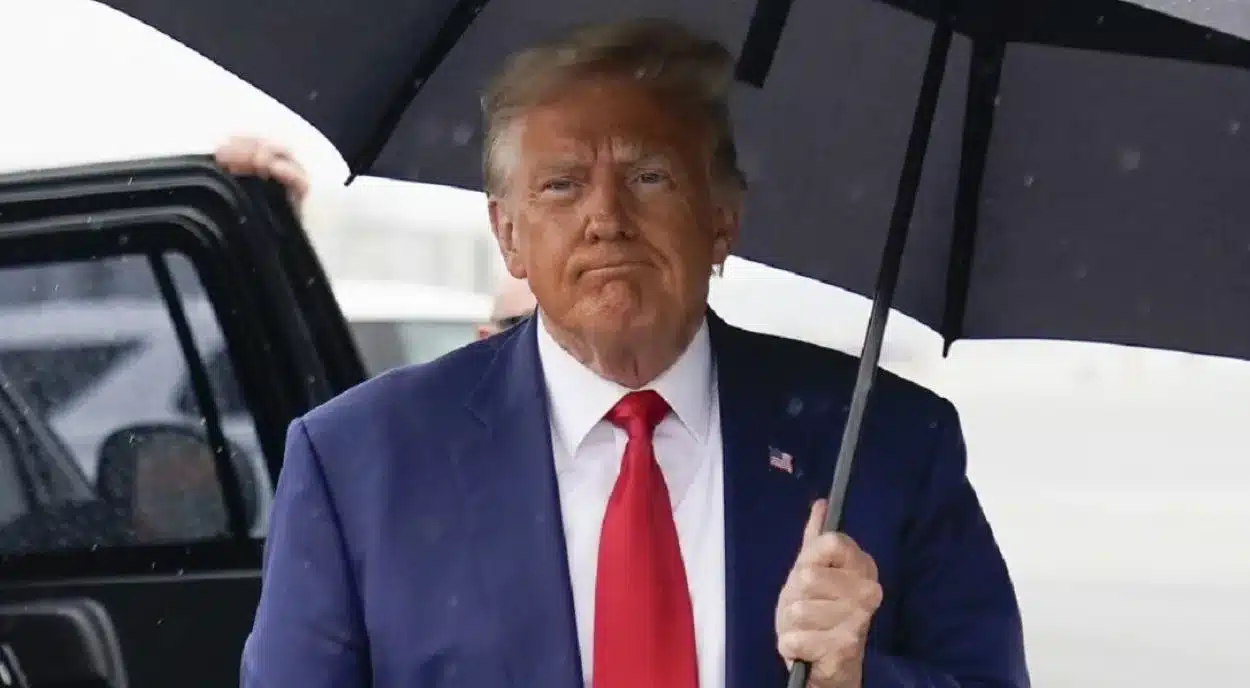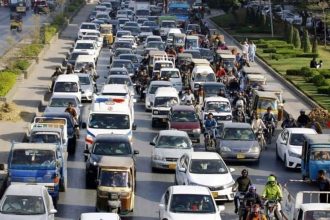Former U.S. President Donald Trump vehemently asserted his innocence on charges linked to an alleged scheme aimed at subverting the results of the 2020 presidential election.
U.S. prosecutors claim this action was an extraordinary move by the then-president to shake the foundational aspects of the American democratic system. In a notable display of resolve, Trump entered his plea before U.S. Magistrate Judge Moxila Upadhyaya, repeating his plea from previous occasions, “Not guilty.”
The arraignment was conducted in a Washington courthouse, a mere kilometre from the U.S. Capitol – a site that witnessed a violent incursion by Trump supporters on January 6, 2021, an event aimed at stalling Congress from confirming Trump’s electoral defeat. This marks the third time that Trump has denied guilt since April. His trial is set to unfold amid the heightened political climate leading up to the 2024 presidential race, wherein Trump is leading the Republican nomination to challenge incumbent Democratic President Joe Biden.
Dissecting the Charges and the Future Course of Action
Special Counsel Jack Smith, the officer overseeing the federal investigation, recently unveiled a 45-page indictment accusing Trump and his allies of endorsing unfounded allegations of election fraud. This involved pressuring officials at both state and federal levels to alter the results and orchestrating counterfeit elector slates to seize electoral votes from Biden.
Trump, now 77, faces four counts, including conspiracy to defraud the U.S., deprivation of citizen voting rights, and obstruction of an official proceeding. If convicted, the most severe charge may entail a 20-year prison term. The next court hearing is scheduled for August 28, overseen by U.S. District Judge Tanya Chutkan. Trump’s attendance, however, is not mandatory. It is expected that Chutkan will set a trial date at this meeting.
The former president’s legal counsel, John Lauro, raised early objections citing the enormity of the case and the vast amount of evidence involved that might necessitate an extended timeline. However, Prosecutor Thomas Windom argued for a normal and swift trial procedure. In the interim, Trump was released without any travel limitations, stipulating that he could not discuss the case with witnesses unless in the presence of his attorneys.
Trump’s Backlash and the Ripple Effects on His Political Ambitions
Trump decried the indictment, and the other criminal cases against him, as a politically driven “witch hunt” aimed at thwarting his presidential campaign. Echoing his sentiments, he told reporters that it was a “sad day for America” and deemed it as a persecution of a political adversary.
This case adds to the litany of legal issues for Trump, who had pled not guilty to federal charges for retaining classified documents post-presidency and falsifying documents related to hush-money payments to an adult film actress. Additional charges from Georgia may be on the horizon, where state prosecutor Fani Willis is investigating Trump’s efforts to reverse the election outcome.
Despite his legal woes, Trump remains a Republican favourite. A recent Reuters/Ipsos poll revealed that he still holds a significant lead over his closest competitor, Florida Governor Ron DeSantis. However, a conviction of a felony could deter about half of his Republican supporters, indicating the potential jeopardy his legal predicaments pose to his candidacy.
The indictment’s details have been widely reported, featuring grand jury testimonies and contemporaneous notes from former Vice President Mike Pence. These reveal persistent pressure from Trump on Pence to reject electoral votes, despite Pence’s constant assertions of lacking the authority to do so. This led to the Capitol violence, with Trump’s supporters chanting, “Hang Mike Pence!” Undeterred, Trump continued his attempts to halt certification, according to the indictment. Pence’s criticism of Trump was a rare voice of dissent in the largely supportive Republican response.
Consequently, Trump’s legal entanglements continue to fuel tension in the political landscape as the next presidential election cycle approaches. It remains to be seen how this situation will evolve and its potential impact on his political career.






